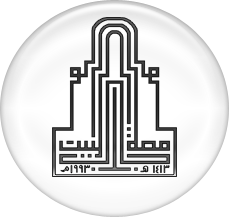| DC Field | Value | Language |
|---|
| dc.contributor.author | خالد شنيكات | - |
| dc.date.accessioned | 2020-02-11T07:16:27Z | - |
| dc.date.available | 2020-02-11T07:16:27Z | - |
| dc.date.issued | 2018-10-21 | - |
| dc.identifier.uri | http://hdl.handle.net/123456789/1900 | - |
| dc.description.abstract | ملخص
هدفت هذه الدراسة الى بحث دور المحكمة الدستورية في النظام السياسي الأردني وبنيتها، والتي تأسست نتيجة التعديلات الدستورية 2011م، من خلال مناقشة مسألة أداء المحكمة من خلال تحليل عينة من قرارات المحكمة حتى الآن، والأثر السياسي والاجتماعي لهذه القرارات، وهل أحدثت أي اختلاف في النظام الدستوري في الأردن وسيادة القانون، وتبدو أهمية الدراسة في معرفة طبيعة الرقابة الدستورية التي أوجدتها المحكمة الدستورية، ودراسة التغيير الذي أحدثته في النظام السياسي الأردني ككل، ولتحقيق اهداف الدراسة فقد استخدمت المنهج القانوني، والمقارنة.
وتوصلت الدراسة الى إن إنشاء محكمة دستورية تعنى بالرقابة على دستورية القوانين يعدّ من أهم شروط إرساء دولة القانون. ومن أهم الآليات التي تضمن الحقوق والحريات الفردية والعامة التي جاء بها الدستور، كما أن الأخذ بمركزية الرقابة بحيث تعنى محكمة واحدة بالفصل بدستورية القوانين افضل من نظام الرقابة اللامركزية؛ وأوصت الدراسة بـضرورة قيام المحكمة بمطابقة وملائمة القوانين للنص الدستوري، حتى في غياب أي طعن مقدّم من الجهات السياسية المذكورة في المادة 9 من قانون المحكمة، واتاحة الفرصة للأفراد المتضررين من القوانين والأنظمة فيما يخصّ حقوقهم وحرياتهم بالطعن بعدم الدستورية، وضرورة تبسيط إجراءات الطعن غير المباشر عن طريق الدفع بعدم الدستورية.
الكلمات الدالة: المحكمة الدستورية، النظام السياسي، الدستور، الحكومة، الفصل بين السلطات، سيادة القانون.
Abstract
The study aims at examining the role of the Constitutional Court in the Jordanian political system and its structure. The Constitutional Court was established as a result of the
constitutional amendments of 2011. The study discussed the performance of the court through analyzing a sample of its decisions so far. The study showed the political and social impact of these decisions and the difference that these decisions made in the constitutional system in Jordan and their effect on the application of the rule of law.
The importance of the study lies in: knowing the nature of the constitutional control created by the Constitutional Court and examining the change that it has made in the Jordanian political system as a whole. To achieve the objectives of the study, the researcher used the legal approach and the comparative method.
The study found that the establishment of a constitutional court to monitor the constitutionality of laws is one of the most important conditions for establishing the rule of law. It is one of the most important mechanisms guaranteeing the individual and public rights and freedoms enshrined in the Constitution. The introduction of centralized control, so that one court would rule on the constitutionality of laws, is better than a decentralized control system.
The study recommended that the court should comply with the provisions of the constitutional law, even in the absence of any appeal by the political parties mentioned in article 9 of the law of the court. It also provides the opportunity for individuals affected by laws and regulations with regard to their rights and freedoms to challenge the unconstitutionality of laws. The study also recommends simplifying indirect appeal procedures by pushing for unconstitutionality.
Keywords: Constitutional Court, Political System, Constitution, Government, separation of powers, Rule of Law. | en_US |
| dc.subject | الكلمات الدالة: المحكمة الدستورية، النظام السياسي، الدستور، الحكومة، الفصل بين السلطات، سيادة القانون. | en_US |
| dc.title | دور المحكمة الدستورية في النظام السياسي الأردني - دراسة في بنية المحكمة وقراراتها- | en_US |
| dc.type | Other | en_US |
| Appears in Collections: | مج25، عدد 3 لسنة 2019
|

